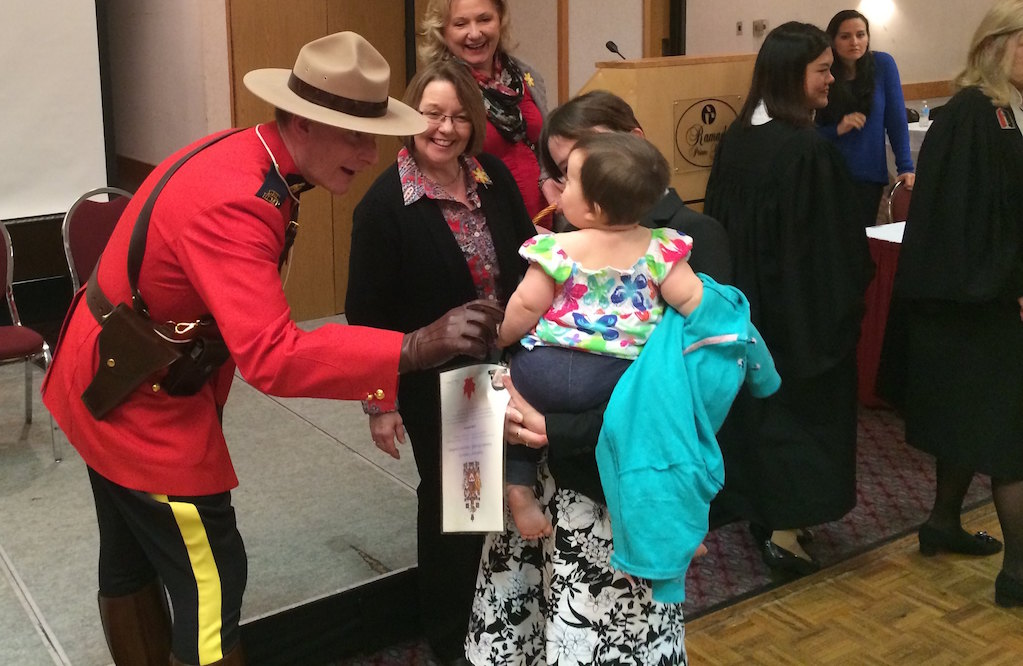This week, CBC News released results of their pre-election online survey, in which the opinions of 4,500 Canadians were sought out. The most notable findings of the survey were that 76 per cent of the respondents agreed that Canada should do more to encourage skilled labourers (through the immigration system’s economic stream) to immigrate to the country, 57 per cent said Canada should not be accepting more refugees, and 24 per cent said too many immigrants are visible minorities.
The poll cannot go unchallenged because it has obvious flaws that need to be addressed. Asking respondents whether they agree or disagree with a statement like “Illegal immigration is becoming a serious problem in Canada” negatively biases their mind from the outset. Using language that portrays refugee claimants as “illegal” paints them with criminality. Legal experts and human rights advocates have time and again urged Canadian politicians and journalists to think carefully before they speak and to consider the effects language might have, both on refugees and the Canadian population. It should be made clear that it is not illegal for someone to enter Canada to make a refugee claim at any point along the Canada-U.S. border. As Alex Neve of Amnesty International Canada said, “It’s absolutely incumbent upon all of us to stop using the word ‘illegal’ to refer to individuals who cross borders to make refugee claims.” Perhaps this should be an opportunity to reiterate the importance of abolishing the Safe Third Country Agreement (STCA). As recommended by Citizens for Public Justice in the report “Reclaiming Protection,” access to refugee protection at the Canada-U.S. border should be restored and the STCA with the U.S. should be rescinded in order to provide safety for refugees and to maintain our tradition as a global leader for welcoming refugees.
Secondly, to pit refugees against migrants who come into Canada through the economic stream is rather disingenuous. The underlying assumption here is that refugees are a drain to Canadians, which is a fallacy. This assumption is based on myths spread by anti-refugee advocates, like one that says refugees take advantage of Canadians’ generous social programs. The truth is that refugees do not choose but are forced to flee their homes, with some leaving behind good jobs. Most are very eager to work so that they can support themselves and the families left behind in their countries of origin. This means that refugees are as willing to work and pay taxes as people who immigrate through economic streams. It is, therefore, unnecessary to divide immigrants along the lines of which stream they came into Canada. Fifty-three per cent of the Canadians interviewed in an Environics Institute poll of 2,000 agreed that immigrants tend to work harder than people born in Canada.
Thirdly, the survey asked respondents to make a choice as to whether there are “too many immigrants of visible minorities,” whether their number is about right, and whether there are not enough visible minority immigrants, and provided a choice for those who do not care about the racial make-up of immigrants. Such questions have the propensity to polarize Canadians particularly along race lines. Asking respondents to chose among the foregoing is equivalent to promoting social exclusion against visible minorities and fits in well with the systematic racism prevalent in Canada. For example, a recent study has found that visible minorities in Canada are slightly more likely than those in the United States to face discrimination during hiring.
Several polls and surveys have been commissioned since the beginning of this year, with some echoing each other while others conflicted with each other. Studies have shown that surveys can be used to give an inaccurate picture of public opinion. It is important to clearly understand the methodology and questions asked of each survey and point out the flaws and strengths of each. It is almost certain that the issue of immigration and refugees will be a major election issue. The 2019 federal election will present a fresh opportunity for people across Canada to shape the kind of country we want to be. As Canadians prepare to cast their votes, it’s essential that they consider the collective interests of fellow citizens and non-citizens, as well as those beyond our nation’s borders.
Stephen Kaduuli is the Refugee Rights Policy Analyst at Citizens for Public Justice. Stephen has a master’s degree in demography from the Australian National University, a BA in social work from Makerere University, and a diploma in paralegal studies from Herzing College Toronto. He also has certificates in refugee and forced migration studies from Oxford and York universities.



